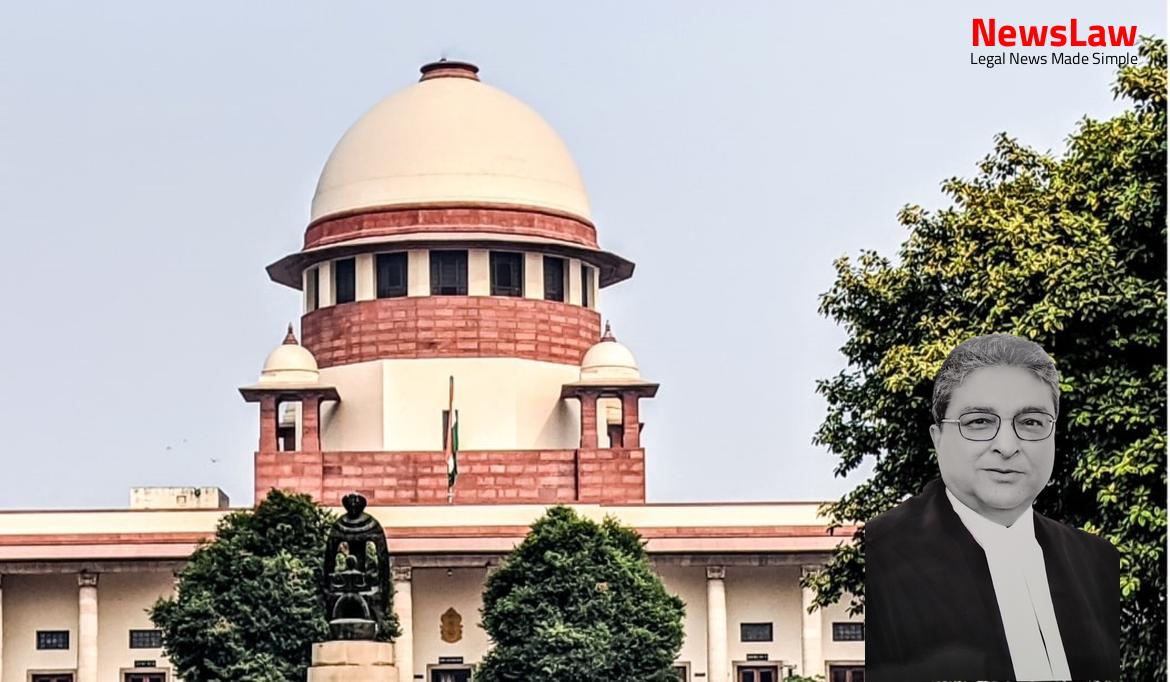In a recent legal case, the court delved into the complexities of contractual versus regular employment at Gautam Buddha University. The case focused on the implications of the University’s adherence to formal appointment procedures and the termination of services post-contractual period. Let’s dive into the legal analysis of this case to understand the significance of procedural fairness and the application of principles of natural justice in employment disputes.
Facts
- Appellant selected as Senior Scientific Officer on contractual basis by the University on 3 August 2011.
- Initially appointment was for a period of two years.
- Services extended for another year on 7 August 2013.
- Appellant applied in response to advertisement for the post.
- Appellant approached High Court after being informed of the expiry of contractual appointment on 11 August 2014.
- The High Court of Judicature at Allahabad dismissed the writ petition in its order dated 23 May 2018.
Also Read: Presumption of Genuine Endorsements in Cheque Case
Arguments
- The appellant, K. Ragupathi, approached the court aggrieved by the dismissal of his writ petition challenging the discontinuation of his services by Gautam Buddha University.
- The appellant claims that the communication of relieving him amounted to a punitive termination, while the respondent argues that his appointment was contractual and had no right to continue post the contractual period.
- The High Court of Judicature at Allahabad dismissed the appellant’s writ petition.
- The respondent, through counsel Shri Mishra, justified the termination citing activities detrimental to the university’s interests.
- The appellant argues that his appointment followed due selection processes and termination without an enquiry was unjust.
Also Read: Medical Negligence and Compensation: A Landmark Decision
Analysis
- Clause (6) of the Amendment Act of 2008 substituted Section 29(1) of the Gautam Budh University Act, 2002.
- Every employee must be appointed under a written contract to be lodged by the University, with a copy furnished to the employee.
- The amendment by the State of U.P. makes it mandatory for the University to adhere to this initial appointment procedure.
- The appellant underwent the entire selection process before being appointed.
- The appointment, though labeled as contractual, is effectively on a regular basis.
- The services of the appellant were discontinued due to allegations made by the Dean.
- All teaching employees at the University are continuing on a contractual basis.
- Candidates are required to undergo the full selection process for appointments, despite being on a contractual basis.
- The terms and conditions for employees, even on a contractual basis, are almost identical to regular employees.
- The University has not regularized any candidate on a teaching post since 2011.
- The University appoints employees on a contractual basis following the same selection process as for regular appointments.
- Appointments are made post selection by a duly constituted Selection Committee.
- The appellant’s performance as per the Annual Performance Assessment Reports was outstanding.
- Integrity and reputation of the appellant are mentioned to be good.
- Gross irregularities in work and conspirational character are noted in the administrative warning issued to the appellant.
- University stated that even though employment was contractual, all benefits of a regular employee were provided.
- Appellant’s services could not be terminated without following principles of natural justice.
- Appeal allowed based on this ground.
Also Read: Remand of Writ Petition for Restoration and Decision on Merits
Decision
- Appellant directed to be reinstated with continuity in service.
- Pending applications disposed of in the above terms.
- Appeal allowed.
- Impugned orders quashed and set aside.
- No entitlement to back wages.
Case Title: K. RAGUPATHI Vs. THE STATE OF UTTAR PRADESH (2022 INSC 558)
Case Number: C.A. No.-003913-003913 / 2022



